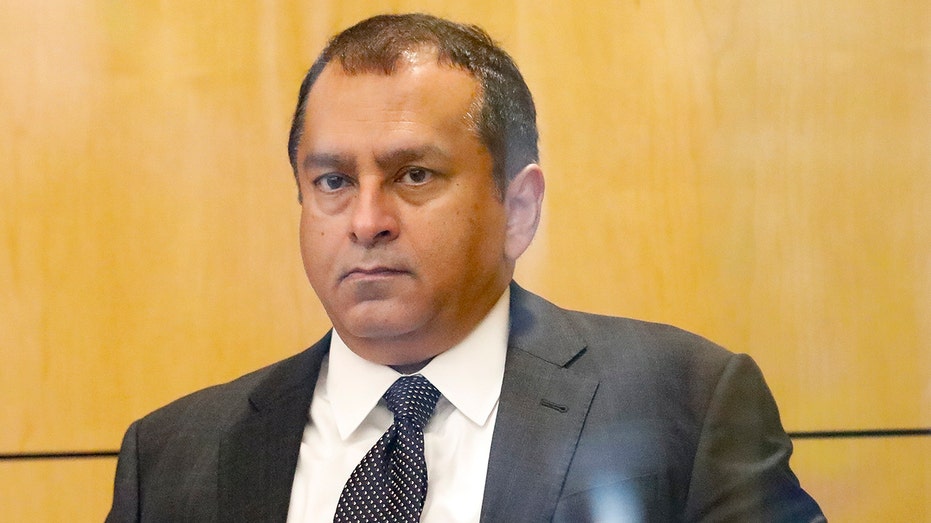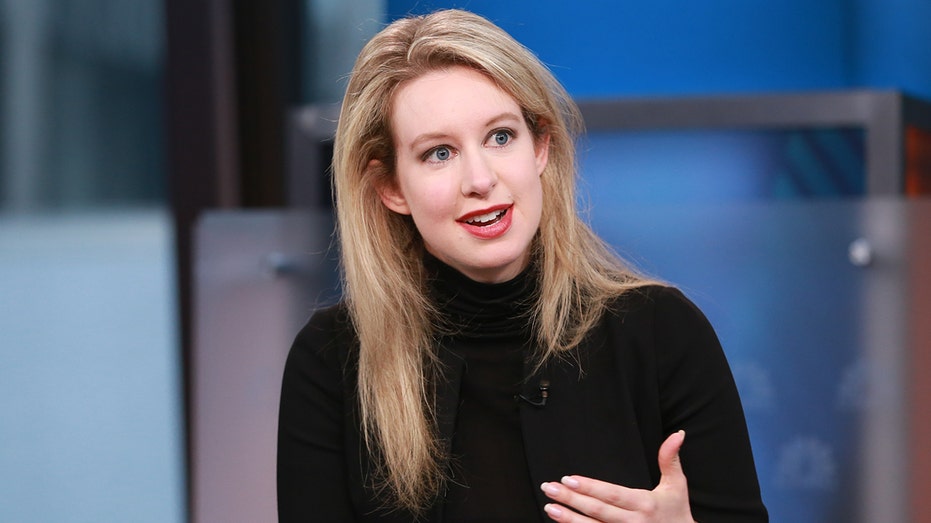The Elizabeth Holmes trial: Prosecution gets final chance to sway jurors
In closing arguments, defense counters that jury doesn’t have ‘the full story’
Elizabeth Holmes putting on 'very believable act': Lashinsky
FOX contributor Adam Lashinsky comments on the unravelling of the Theranos trial.
Prosecutors in Elizabeth Holmes’s criminal-fraud trial made their case one more time in closing arguments Thursday as jurors move closer to deciding the fate of the Theranos Inc. founder.
Assistant U.S. Attorney Jeffrey Schenk gave jurors a summation of the government’s case against Ms. Holmes, arguing she knowingly and willfully lied about Theranos’s technology to salvage her startup as it quickly ran low on money.
"She chose to be dishonest," Mr. Schenk said. "That choice was not only callous, it was criminal."
The closing arguments offer a bookend to the closely watched trial that began Sept. 8, in which Ms. Holmes faces 11 counts of wire fraud and conspiracy to commit wire fraud. In his hourslong conclusion, Mr. Schenk sought to erase any doubt in jurors’ minds about Ms. Holmes’s guilt. He characterized her alleged fraud as deliberate, delineating numerous lies that were repeated to investors and business partners. Mr. Schenk said the lies were so convincing they resulted in a financial windfall and business deals for Ms. Holmes’s company.

Elizabeth Holmes, center, walks into federal court in San Jose, Calif., Monday, Nov. 22, 2021. Holmes is accused of duping elite financial backers, customers and patients into believing that her startup was about to revolutionize medicine. (AP Photo/ ((AP Photo/Nic Coury) / AP Newsroom)
Ms. Holmes could have told the truth, said Mr. Schenk, but honesty wouldn’t have brought in hundreds of millions of dollars in investment that Theranos needed, nor would it have brought in revenue from patients.
"Imagine for a moment what an honest pitch would have sounded like to investors in 2013," Mr. Schenk told the jury. After 10 years of working on its technology, the company could perform only 12 types of patient blood tests on its proprietary devices, and even those were unreliable. And, contrary to claims Ms. Holmes made, Theranos didn’t have contracts with the military and its technology hadn’t been validated by major pharmaceutical companies, Mr. Schenk said.
"Ms. Holmes knew that these honest statements would not have led to revenue and she chose a different path," he said.
After the government finished Thursday afternoon, one of Ms. Holmes’s defense attorneys began presenting closing arguments.
"The picture can change quite a good deal as a result of waiting for the full story," defense lawyer Kevin Downey told the jury as he delved into his arguments.
MEDTRONIC SHARES SLIDE AFTER DIABETES BUSINESS RECEIVES FDA WARNING LETTER
The case could go to the jury as soon as Friday, after prosecutors get to have the last word. Deliberations are expected to stretch into next week.
Mr. Schenk reminded the jury of the 29 witnesses the prosecution called to testify—former Theranos employees, a former board member, investors, patients and doctors—and listed the categories of lies Ms. Holmes allegedly told that helped her raise money and become a Silicon Valley superstar.
He said Ms. Holmes overstated Theranos’s technological capabilities, including that it could run tests for a full range of health conditions using a finger prick of blood; projected financial stability by inflating revenue projections; and gave misleading technology demonstrations. She misrepresented Theranos’s relationship with Walgreens Boots Alliance Inc., Mr. Schenk said, and concealed Theranos’s use of third-party commercial analyzers. She claimed Theranos had been validated by pharmaceutical companies, including by forging the logos of pharmaceutical giants onto Theranos reports, and touted contracts with the military, he said. She lied to the media and then shared the articles that contained her misstatements with investors, he said.
Mr. Schenk attempted to knock down an excuse Ms. Holmes often gave to investors and business partners during her time leading Theranos, one she repeated in her testimony during trial: She couldn’t share certain things about the company because they were trade secrets.
"The trade-secrets excuse is a red herring," Mr. Schenk told the jury. "I don’t think you should accept the fact that trade secrets give her permission to make false statements."
The prosecution must prove that Ms. Holmes intended to lie and knew she was acting unlawfully to secure a conviction. Mr. Schenk told the jury that Ms. Holmes’s alleged lies were intentional because of the depth of knowledge she had about her own company. She controlled the company’s most vital functions, he said: communications with investors, business development, public relations, financial projections, business partnerships, the company’s website and what was said to doctors and regulators.
Mr. Schenk showed the jury emails conveying customer complaints about inaccurate test results that were sent to Ms. Holmes, as well as text messages Ramesh "Sunny" Balwani, Ms. Holmes’s former boyfriend and Theranos’s chief operating officer, alerting her to the terrible state of the company’s lab.

SAN JOSE, CA - JULY 17: Former Theranos COO Ramesh Balwani appears in federal court for a status hearing on July 17, 2019 in San Jose, California. (Photo by Kimberly White/Getty Images) (Photo by Kimberly White/Getty Images / Getty Images)
In one email to Ms. Holmes, an attorney hired by Theranos raised questions about the truthfulness of claims on the company’s website. Mr. Schenk displayed internal financial projections the company controller shared with Ms. Holmes that show a much more modest financial outlook than the numbers Ms. Holmes gave investors.
"They are not just false statements, they are knowingly false statements," Mr. Schenk said, in what became a refrain during his closing arguments.
THE ELIZABETH HOLMES TRIAL: THERANOS FOUNDER ADMITS REGRETS, DEFLECTS PROSECUTORS
Another element of the crime, Mr. Schenk said, is materiality, or showing the alleged misstatements could have impacted a victim’s decision-making. Mr. Schenk argued that what Ms. Holmes said to investors mattered to them when they chose to give Theranos millions of dollars, and that what patients were told informed their decision to get their lab tests done with Theranos.
Mr. Schenk said Ms. Holmes knew how to "catch flies with honey"—what to say to investors and how to treat them to get their money.
The defense countered that Ms. Holmes was earnest in her exchanges with investors. She conveyed to them only the feedback she got from the scientists and engineers who worked for her and that of medical experts at institutions such as Johns Hopkins University who told her Theranos’s technology worked, Mr. Downey told jurors.
A medical expert at Johns Hopkins who reviewed Theranos’s technology reported that it was "novel and sound," according to earlier testimony.
"What does it say about Ms. Holmes?" Mr. Downey asked the jury. "She wasn’t afraid to have this technology validated." He said Ms. Holmes’s willingness to have outside experts scrutinize her technology and that she welcomed feedback showed she didn’t have an intent to defraud.

Elizabeth Holmes, Theranos CEO and the world's youngest self-made female billionaire, in an interview on September 29, 2015 (David Orrell/CNBC/NBCU Photo Bank/NBCUniversal via Getty Images / Getty Images)
He questioned the plausibility of Theranos deceiving Walgreens, as prosecutors have alleged. At the time of the first meeting between the companies, in 2010, Theranos was a 6-year-old startup with a 26-year-old CEO and no public presence. Walgreens was a major national retailer and publicly traded company, Mr. Downey said.
"It’s hard to see how Walgreens was defrauded," Mr. Downey said.
Ms. Holmes’s testimony about the alleged emotional and sexual abuse she suffered from Mr. Balwani became the centerpiece of her time on the witness stand, although it didn’t directly address the charges against her. Mr. Balwani has denied all allegations of abuse.
GET FOX BUSINESS ON THE GO BY CLICKING HERE
Jurors were told by Mr. Schenk they shouldn’t let these allegations become an obstacle in their deliberations. He said that if jurors return a verdict of guilty, they aren’t saying they don’t believe her claims of abuse; or conversely, a not-guilty verdict doesn’t mean they believe her abuse allegations.
Mr. Schenk also cautioned the jury not to give weight to the defense’s portrayal of Ms. Holmes as an inexperienced and naive entrepreneur, because she dropped out of college at age 19 to start Theranos. By the time of the alleged fraud, he said, she had had many years of experience as CEO.
"Theranos didn’t need more experience to avoid the fraud," he said. "They needed a CEO and a COO who interacted with people honestly."




















